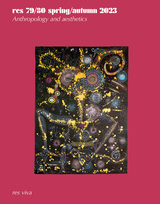5 start with T start with T

Most teenagers are too young to vote and are off the radar of political scientists. Teenage Citizens looks beyond the electoral game to consider the question of how this overlooked segment of our citizenry understands political topics. Bridging psychology and political science, Constance Flanagan argues that civic identities form during adolescence and are rooted in teens’ everyday lives—in their experiences as members of schools and community-based organizations and in their exercise of voice, collective action, and responsibility in those settings. This is the phase of life when political ideas are born.
Through voices from a wide range of social classes and ethnic backgrounds in the United States and five other countries, we learn how teenagers form ideas about democracy, inequality, laws, ethnic identity, the social contract, and the ties that bind members of a polity together. Flanagan’s twenty-five years of research show how teens’ personal and family values accord with their political views. When their families emphasize social responsibility—for people in need and for the common good—and perform service to the community, teens’ ideas about democracy and the social contract highlight principles of tolerance, social inclusion, and equality. When families discount social responsibility relative to other values, teens’ ideas about democracy focus on their rights as individuals.
At a time when opportunities for youth are shrinking, Constance Flanagan helps us understand how young people come to envisage the world of politics and civic engagement, and how their own political identities take form.
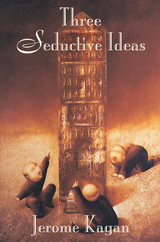
Do the first two years of life really determine a child’s future development? Are human beings, like other primates, only motivated by pleasure? And do people actually have stable traits, like intelligence, fear, anxiety, and temperament? This book, the product of a lifetime of research by one of the founders of developmental psychology, takes on the powerful assumptions behind these questions—and proves them mistaken. Ranging with impressive ease from cultural history to philosophy to psychological research literature, Jerome Kagan weaves an argument that will rock the social sciences and the foundations of public policy.
Scientists, as well as lay people, tend to think of abstract processes—like intelligence or fear—as measurable entities, of which someone might have more or less. This approach, in Kagan’s analysis, shows a blindness to the power of context and to the great variability within any individual subject to different emotions and circumstances. “Infant determinism” is another widespread and dearly held conviction that Kagan contests. This theory—with its claim that early relationships determine lifelong patterns—underestimates human resiliency and adaptiveness, both emotional and cognitive (and, of course, fails to account for the happy products of miserable childhoods and vice versa). The last of Kagan’s targets is the vastly overrated pleasure principle, which, he argues, can hardly make sense of unselfish behavior impelled by the desire for virtue and self-respect—the wish to do the right thing.
Written in a lively style that uses fables and fairy tales, history and science to make philosophical points, this book challenges some of our most cherished notions about human nature.
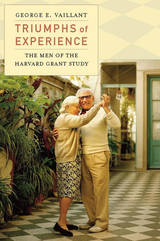
At a time when many people around the world are living into their tenth decade, the longest longitudinal study of human development ever undertaken offers some welcome news for the new old age: our lives continue to evolve in our later years, and often become more fulfilling than before.
Begun in 1938, the Grant Study of Adult Development charted the physical and emotional health of over 200 men, starting with their undergraduate days. The now-classic Adaptation to Life reported on the men’s lives up to age 55 and helped us understand adult maturation. Now George Vaillant follows the men into their nineties, documenting for the first time what it is like to flourish far beyond conventional retirement.
Reporting on all aspects of male life, including relationships, politics and religion, coping strategies, and alcohol use (its abuse being by far the greatest disruptor of health and happiness for the study’s subjects), Triumphs of Experience shares a number of surprising findings. For example, the people who do well in old age did not necessarily do so well in midlife, and vice versa. While the study confirms that recovery from a lousy childhood is possible, memories of a happy childhood are a lifelong source of strength. Marriages bring much more contentment after age 70, and physical aging after 80 is determined less by heredity than by habits formed prior to age 50. The credit for growing old with grace and vitality, it seems, goes more to ourselves than to our stellar genetic makeup.
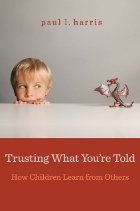
If children were little scientists who learn best through firsthand observations and mini-experiments, as conventional wisdom holds, how would a child discover that the earth is round—never mind conceive of heaven as a place someone might go after death? Overturning both cognitive and commonplace theories about how children learn, Trusting What You’re Told begins by reminding us of a basic truth: Most of what we know we learned from others.
Children recognize early on that other people are an excellent source of information. And so they ask questions. But youngsters are also remarkably discriminating as they weigh the responses they elicit. And how much they trust what they are told has a lot to do with their assessment of its source. Trusting What You’re Told opens a window into the moral reasoning of elementary school vegetarians, the preschooler’s ability to distinguish historical narrative from fiction, and the six-year-old’s nuanced stance toward magic: skeptical, while still open to miracles. Paul Harris shares striking cross-cultural findings, too, such as that children in religious communities in rural Central America resemble Bostonian children in being more confident about the existence of germs and oxygen than they are about souls and God.
We are biologically designed to learn from one another, Harris demonstrates, and this greediness for explanation marks a key difference between human beings and our primate cousins. Even Kanzi, a genius among bonobos, never uses his keyboard to ask for information: he only asks for treats.
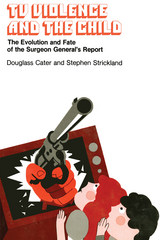
READERS
Browse our collection.
PUBLISHERS
See BiblioVault's publisher services.
STUDENT SERVICES
Files for college accessibility offices.
UChicago Accessibility Resources
home | accessibility | search | about | contact us
BiblioVault ® 2001 - 2024
The University of Chicago Press



